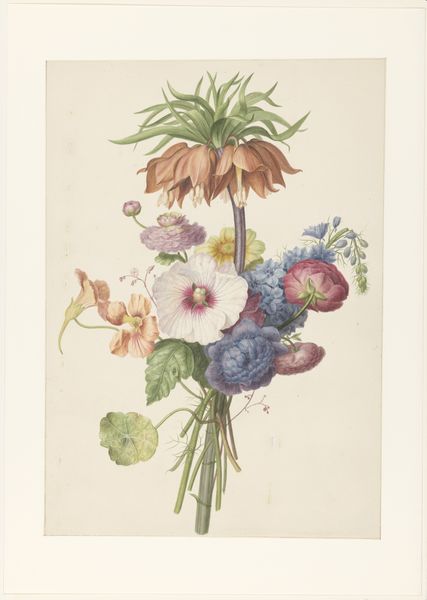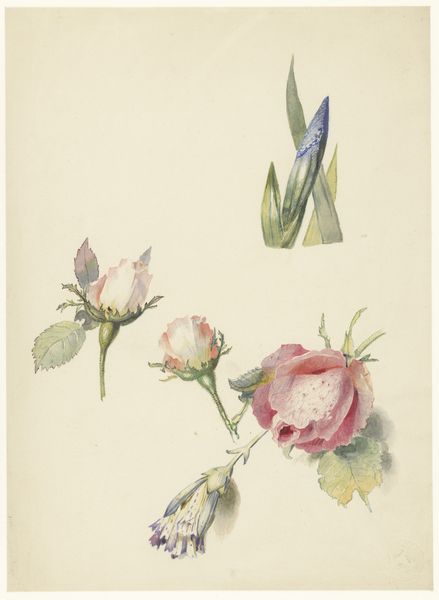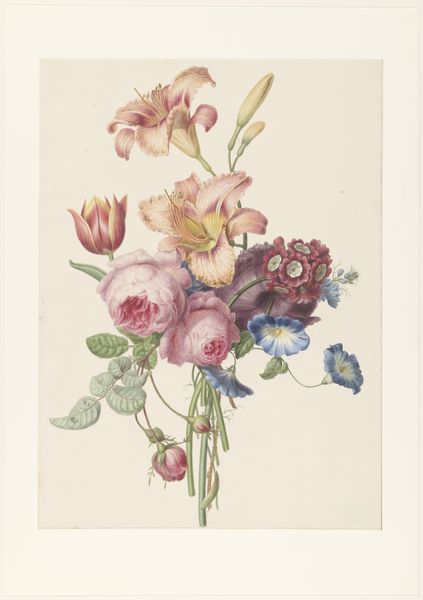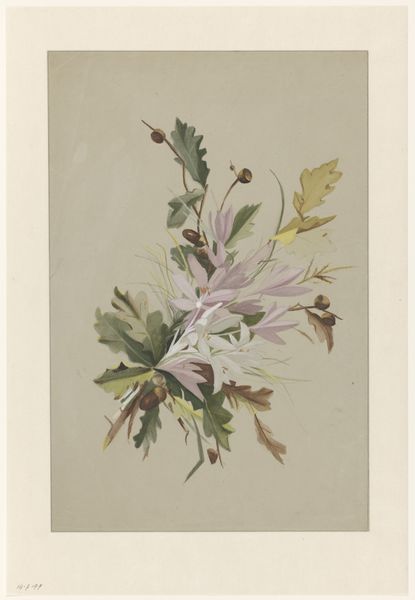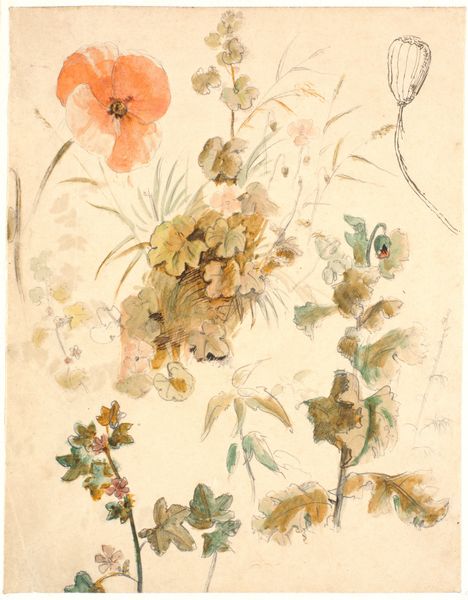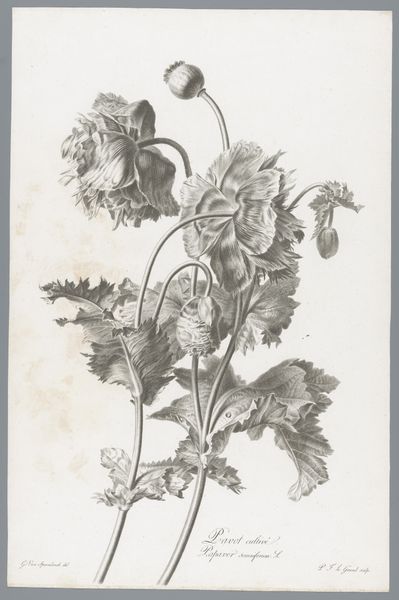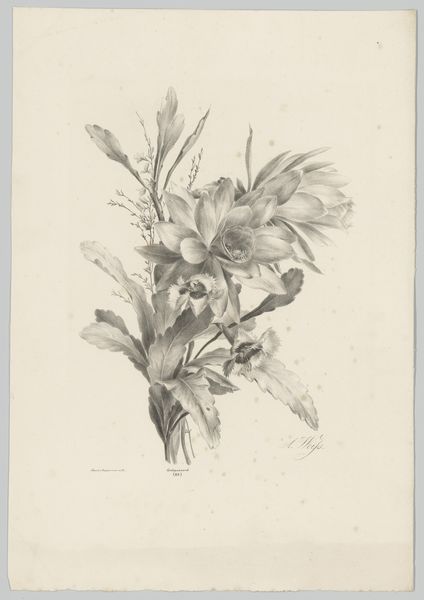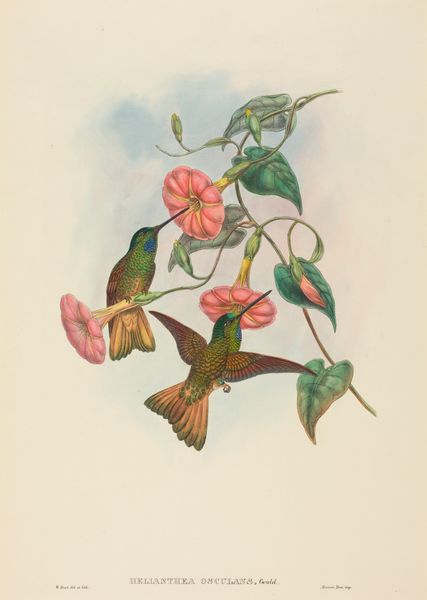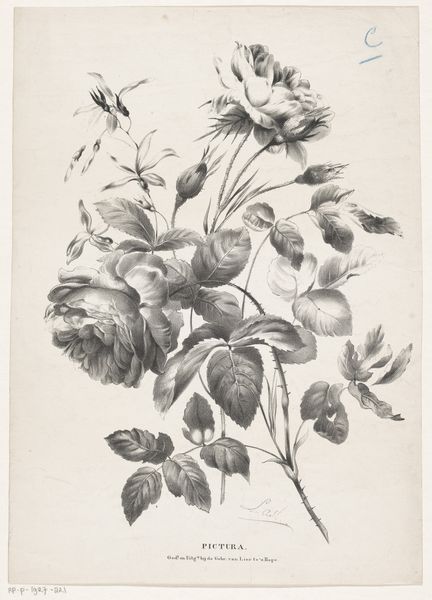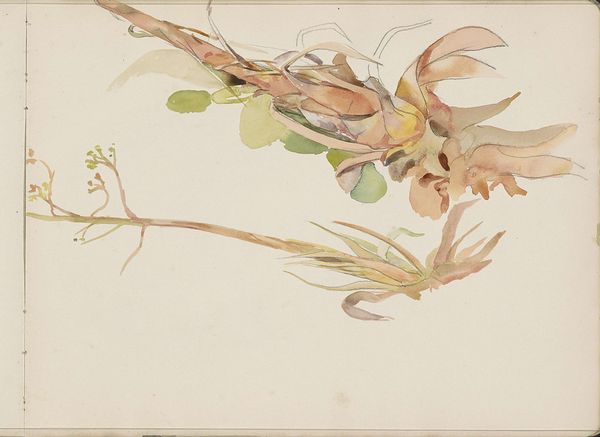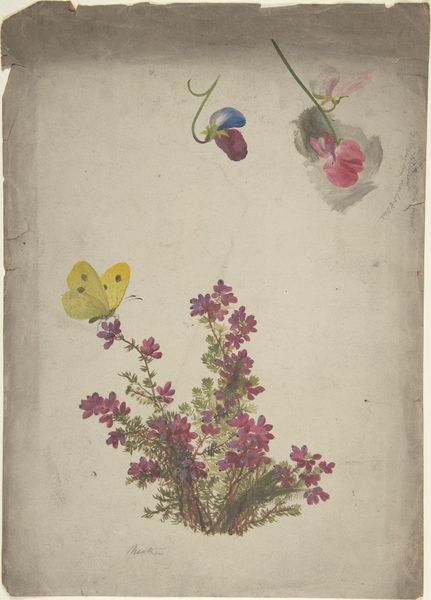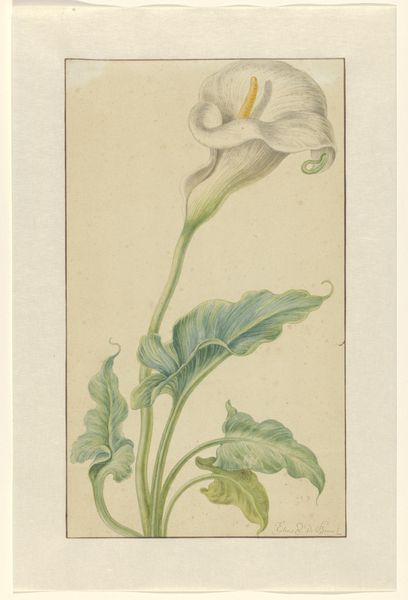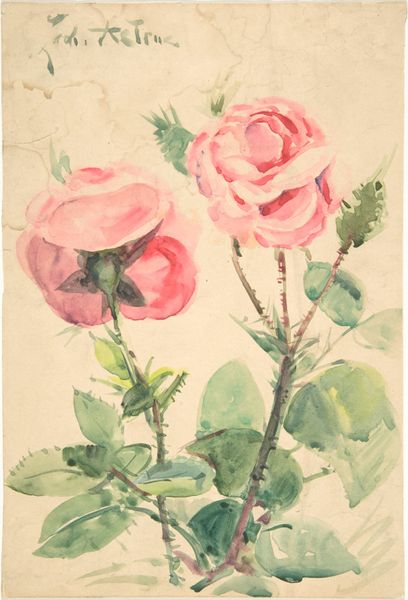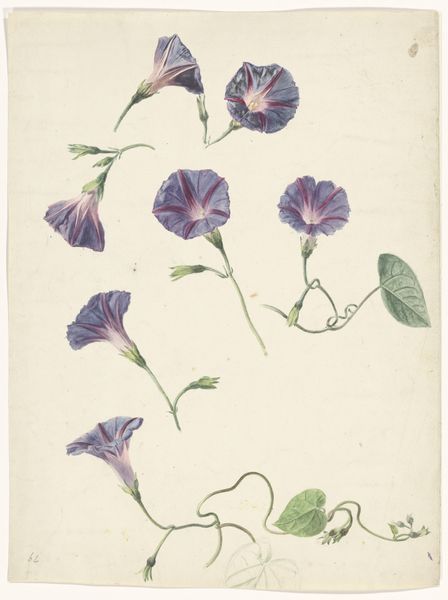
drawing, watercolor
#
vegetal
#
drawing
#
natural world styling
#
culinary art
#
watercolor
#
food illustration
#
floral photography
#
botanical photography
#
botanical drawing
#
food art
#
watercolour illustration
#
botanical art
Dimensions: height 266 mm, width 202 mm
Copyright: Rijks Museum: Open Domain
Editor: Here we have Albertus Steenbergen's "Studieblad met Oost-Indische kers," or "Study Sheet with Nasturtium," created sometime between 1824 and 1900 using watercolor. The detail is lovely, and the colours are quite delicate. How do you approach a piece like this? Curator: I see it as a record of material interaction. Consider the watercolor itself: pigment sourced, ground, and bound, the paper pulped from plants, perhaps rags. These aren’t just neutral materials, but products of specific labor and trade networks. Editor: So, not just a pretty flower picture, then? Curator: Exactly! How did Steenbergen, and his intended audience, gain access to these materials? Who processed them? We must consider the social and economic systems that enabled the creation of even this seemingly simple botanical study. What about the plant itself? Was it a rare specimen or something cultivated for culinary use, thus accessible, perhaps, through the accessiblity of cheap seeds or ease of maintenance in a household? Editor: That makes me think about how even "natural" depictions are still shaped by human activity. Was Steenbergen perhaps subtly showcasing a connection between science, food, and the domestic sphere? Curator: Precisely! This piece is not just a neutral study; it's embedded within networks of production, consumption, and even cultivation, reflecting larger societal values related to knowledge and its accessibility to the common classes through illustrations and ease of acquiring information. Editor: This definitely shifts how I view botanical art. I’ll definitely look at materials and process differently from now on. Curator: That's exactly what engaging with materiality helps us do – uncovering hidden layers of meaning and labor in art.
Comments
No comments
Be the first to comment and join the conversation on the ultimate creative platform.
